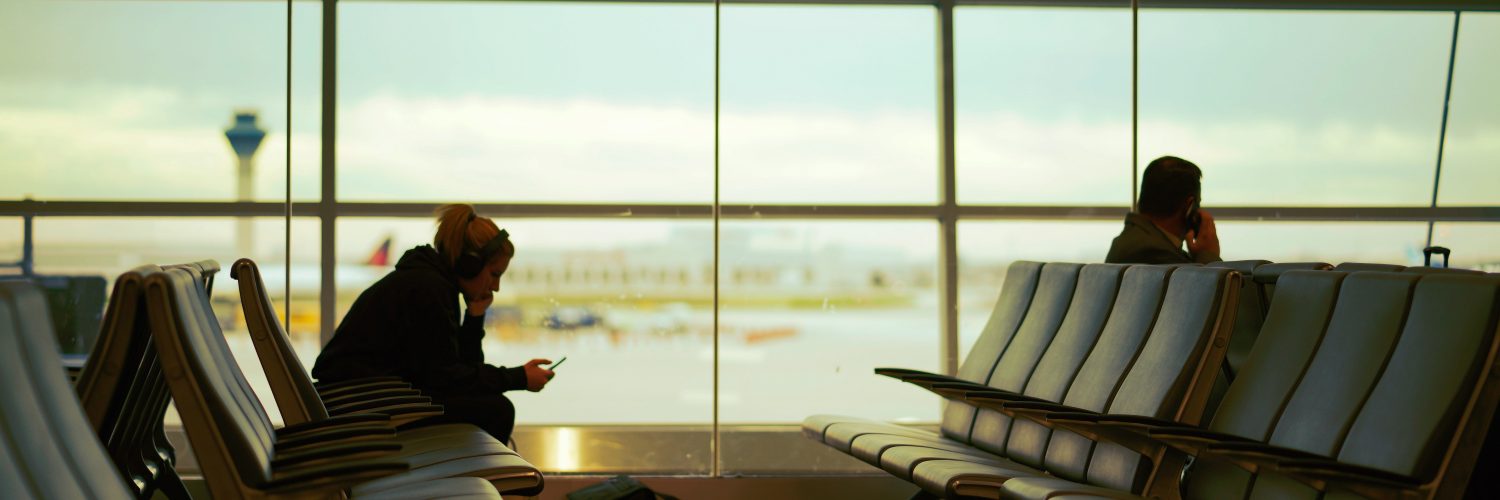Arizona State University is demanding answers about nine Chinese students barred from entering the United States at Los Angeles International Airport last month as they were returning for the fall semester.
On the surface, there appears to be no reason for the denials as the students were carrying “all needed documentation,” ASU President Michael Crow said in letters to the heads of the U.S. State Department and the Department of Homeland Security.
“Yet, they were refused entry at the airport, told they needed to return to China, that they needed to pay for their own airline ticket to do so or face a ban from re-entering the U.S. for five years,” Crow said in a letter to U.S. Secretary of State Michael Pompeo.
The students – all undergraduates – should have been given the option to contact ASU for assistance, Crow states.
He wants a written explanation of new “standard procedures” used by the airport screeners to search their cellphones and deny entry to the U.S.
State of confusion
Whether the university will get answers is unknown. More than two weeks after the incident occurred, ASU remains in the dark.
“At this time, Customs and Border protection have not given ASU any indication of why these students were denied entry to the United States. As far as ASU is concerned, they were academically eligible to return to the university, and we hope they will be able to do so soon,” said university spokesperson Bret Hovell.
After contacting several federal agencies, the school has received little clarity.
Customs and Border Protection issued a generic statement that the students were found “inadmissible” to enter the U.S. based on information discovered during the airport inspection.
No specific reasons were provided beyond a statement that there are more than 60 grounds for inadmissibility that are divided into categories such as criminality, documentation requirements, health-related, immigration violations, labor certification, security, and miscellaneous, university officials said.
Due process concerns
President Crow requested an “immediate review” of each student’s case and an explanation of what new “standard procedures” were used to justify a search of students’ electronic devices.
He’s also asking for a review of all Chinese students denied entry at the airport in the last 90 days.
“In our country, where we value due process and celebrate the different ways in which our government behaves from that of the arbitrary and capricious behavior of other nations, it is beyond my comprehension how the U.S. government could establish and implement policies that bring about the outcomes we are now witnessing,” Crow states.
Meanwhile, faculty members have stepped up to work with the students long distance, Hovell said. All are continuing their studies online and through independent study. Some are planning on graduating this year.
Universities, colleges challenge new foreign student visas
Many universities, colleges, businesses and others are worried that new restrictive visa policies are reducing the numbers of international students that are important to local economies and scientific, technological and other advancements in the U.S.
Chinese students alone represented $14.9 billion in economic impact to the U.S. in 2017, according to the non-profit Open Doors Institute. Currently, more than 350,000 Chinese nationals attend American colleges and high schools, representing one-third of all international students in the U.S.
Last year, 65 universities including Harvard, MIT, Cornell, Duke and Columbia filed a legal challenge to the new student visa rules. They are questioning a policy change used to determine “unlawful presence” for holders of foreign student, exchange visitor, and vocational student visas that increases the likelihood of facing three- to 10-year bans from the U.S. without warning.
“All college and university presidents want to have an internationally diverse campus because our students are going to exist in a globalized world,” Terry Hartle, senior vice president for the American Council on Education told the Washington Post. “But for a number of reasons, there are more concerns about international students enrolling at colleges and universities than I remember in the last 25 years.”
Arizona economies rely on Chinese students
Over the last decade, Arizona universities, government leaders, and industries have sought to attract foreign students.
Arizona now ranks 12th in the country for international students. They spend an estimated $717 million annually in the state, according to the 2018 Open Doors annual education report.
ASU is the top public university for international students. Of approximately 13,000 students, more than 3,500 are from China.
The school also has multiple collaborations with top universities in China.
Among the most recent, the W. P. Carey School, in partnership with Shanghai Advanced Institute of Finance, offers a Doctor of Business Administration in Global Financial Management at Shanghai Jiao Tong University. ASU also is offering degrees in tourism in a partnership at the Hainan University-Arizona State University Joint International Tourism College.
In November, the ASU men’s basketball team is off to Shanghai to play against the University of Colorado Boulder in the Pac-12 Global, that was designed to grow global popularity for Pac-12 athletic programs and universities.
ASU President wants to know
In a letter to Secretary Pompeo, President Crow is requesting action and answers including:
- A written explanation of the new “standard procedures” for the screening of international students upon their arrival at LAX. Who is doing the screening, what training have they received, do they speak Mandarin, and what are the objective criteria being used to refuse entry to students?
- The ability of ASU to talk with and provide ASU international students who enter the U.S. at LAX with assistance when they are being detained or denied access to the U.S.
- A summary of the number and circumstances for denials for entry into the U.S. for
Chinese students entering the U.S. at LAX over the past ninety days.
















As an ASU undergrad and a graduate student, this does not surprise me with regard to Dr. Crowe as I have found him to be very responsive to students. International students add an educational dimension to local students.